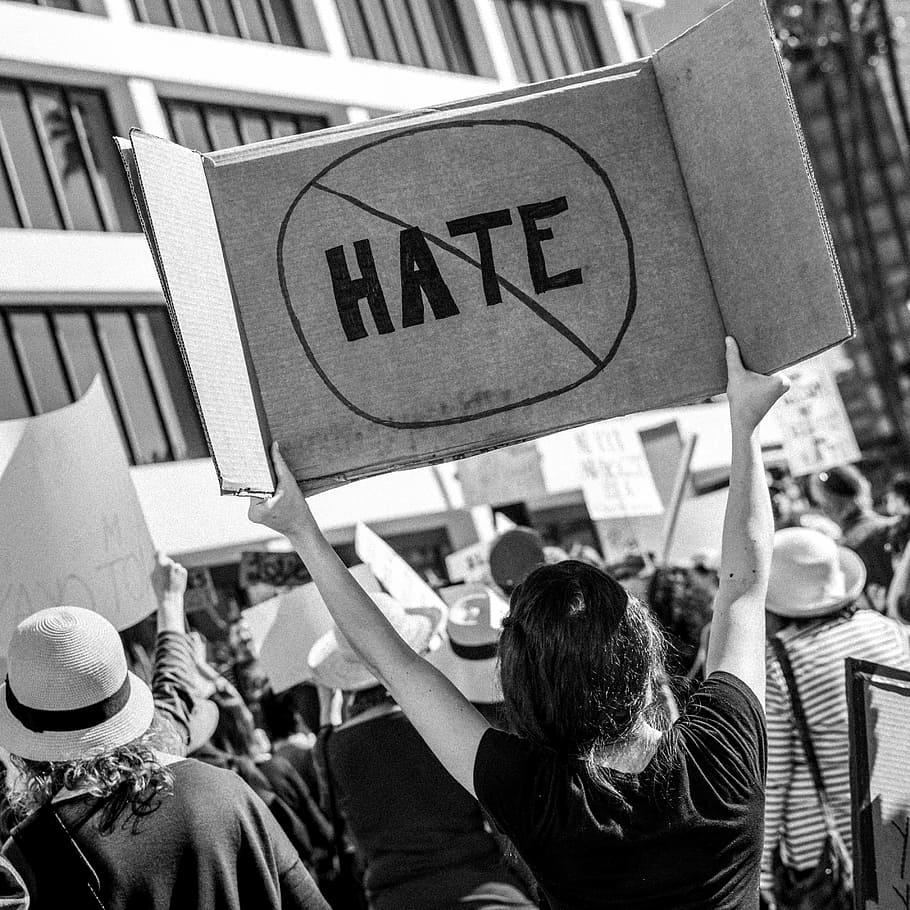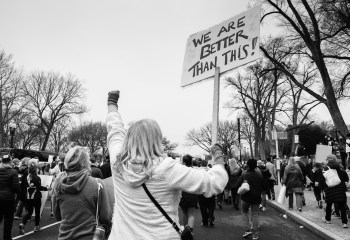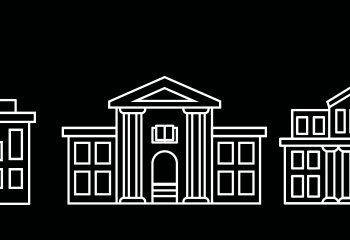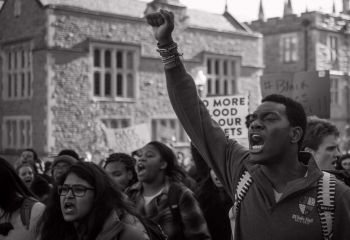
Students are rejecting racist speech, not free speech
On May 5, 2020, Gallup and Knight Foundation released a new report on college students and their attitudes about Free Speech. Sanford J. Ungar shares insights below. View the full report and additional insights here.

Polls often have something to reinforce every point of view, and the latest study of campus attitudes on free speech from Knight Foundation and Gallup is no exception.
For those of us who believe the First Amendment is one of the most crucial building blocks of American democracy, it is encouraging to learn that almost nine out of 10 college students agree in the study that it protects “people like themselves.” And, in these deeply troubled times, it’s a bonus to hear that 81% of the Gallup-Knight sample say they support a campus environment where students are exposed to all types of speech, “even if offensive,” while 69% assert that “inclusion” is also “extremely important.”
On the other hand, it is disappointing, if not bewildering, to discover that 63% of those polled worry that the typical “campus climate” in the United States “deters free expression,” especially for self-described “conservative” students. Indeed, almost 60% support President Donald Trump’s controversial executive order last year threatening to cut off all federal aid to universities that do not respect and promote free speech as he defines it.
If things are so hopeful and idealistic, one might wonder, how can they, at the same time, be so bleak and gloomy?
After spending three years documenting challenges to First Amendment values in this country, across the political spectrum, for our Free Speech Project at Georgetown University, I think I have a partial, if somewhat prosaic, answer:
There are widely varying definitions of free speech in America today, and, as with so many endeavors, where you stand may depend on where you sit.
Some free speech purists, especially on the right, go after “snowflakes” in progressive circles and say it is high time they avoid so-called “safe spaces” and listen to personally offensive or abusive speech they don’t like. But a very large number of others, concentrated particularly on college campuses, draw the line on speech they feel fundamentally degrades, and actually denies the humanity of, members of certain minority groups.
Nowhere has this clash become more virulent these days than around the idea of white supremacy, which, sadly, seems to have experienced a pathetic but vicious revival. The curtain has been pulled back on old racist attitudes that have somehow gained new currency. With a wink and a dog whistle,Trump ostentatiously declared, at the time of the violent clashes in Charlottesville, Va. in the summer of 2017 — between white-supremacist, anti-Semitic demonstrators and their opponents — that there were “many fine people on both sides.”
Whether white supremacy emerges as a contorted appeal to an angry political base, a reminder of murderous domestic terrorism past and present, or a pseudo-intellectual precept, it stings and it inspires well-founded fear. If that is among the ideas that people of color have come to understand free speech protects, I can well imagine they might decide to opt out. No room there for 19th-century British philosopher John Stuart Mill’s noble talk of a “marketplace of ideas” in which the best ones win.
Some ideas lost out big time in that marketplace a long time ago; we fought a civil war in the 1860s and seemingly rejected institutionalized white supremacy and the way of life it represented. Strictly speaking, bigots may enjoy free speech rights like everyone else, but college students are making it clear they don’t care to listen. Hence, the finding that fully 88% of all students in the Gallup-Knight survey – not just minority students – declared that they favor the restriction by campus authorities of “using an offensive racial slur to refer to people of color.”
Meanwhile, students, like many other citizens, think that professional football player Colin Kaepernick, and those who emulate him, are justified in kneeling during the national anthem at public sporting events, in order to draw attention to the unjust treatment of disadvantaged minorities in America. Ironically, 72% of the respondents in the Gallup-Knight survey mistakenly believe that Kaepernick’s actions are legally protected as free speech, an issue that has not yet been ruled upon by the federal courts.
Does all this mean, as the survey seems to suggest, that a belief in free speech, on the one hand, and efforts at diversity and inclusion in American higher education, on the other, inevitably must come into conflict?
Not necessarily. On the contrary, they frequently reinforce each other on campus as in civil society. Free speech guarantees that marginalized voices will be heard, and diversity assures that speech will be more representative and meaningful. Overall, students of all stripes are rejecting not free speech but racist speech, and their elders would do well to learn from them.
Sanford J. Ungar, president emeritus of Goucher College, is director of the Knight-funded Free Speech Project at Georgetown University.
Photo (top) from Wallpaper Flare
Recent Content
-
Information and Societyarticle ·
-
Artsarticle ·
-
Information and Societyarticle ·








